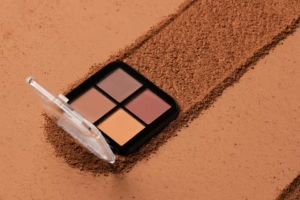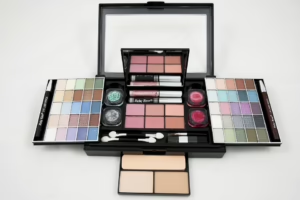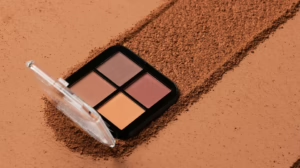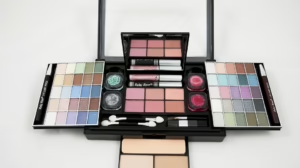Unapologetically Beautiful: Profiles of Trailblazing Black Beauty Icons
In the world of fashion and beauty, the contributions of Black women have often been overshadowed, yet their impact is undeniable. From redefining beauty standards to challenging societal norms, these trailblazing icons have forged paths for future generations. This article explores the lives and legacies of several influential Black beauty figures who have shaped the industry and continue to inspire millions.
I. Introduction
Beauty is a multifaceted concept, often defined by the prevailing societal norms of the time. However, throughout history, Black women have demonstrated that beauty transcends narrow definitions and is deeply rooted in culture, identity, and resilience. The icons spotlighted in this article have unapologetically embraced their heritage and individuality, challenging stereotypes and reimagining beauty for all.
II. The Roots of Beauty: Historical Context
To understand the significance of contemporary Black beauty icons, one must look back at history. The beauty standards imposed by colonialism often marginalized Black aesthetics. Nevertheless, Black women persisted, creating their definitions of beauty rooted in their cultural heritage.
A. The Influence of the Civil Rights Movement
The Civil Rights Movement of the 1960s was pivotal for many Black artists and activists, including beauty icons. Figures such as Angela Davis and Nina Simone embraced natural hairstyles like Afros and wore their skin with pride. Their bold choices were not just statements of personal style but symbols of resistance against racial oppression.
III. Icon Profiles
A. Josephine Baker: The Original Muse
Josephine Baker was more than a performer; she was a cultural phenomenon. Born in St. Louis, Missouri, in 1906, Baker rose to fame in Paris during the Roaring Twenties as a dancer and singer. Her exotic beauty and daring performances captivated audiences, while her rejection of conventional beauty norms made her a trailblazer.
Legacy: Baker’s unabashed confidence and unique sense of style paved the way for future artists. She embodied a new form of beauty that celebrated Black heritage, influencing generations of performers.
B. Donyale Luna: The First Black Supermodel
Donyale Luna made history in the 1960s as the first Black supermodel, appearing on the cover of Vogue in 1966. Born in Detroit, Michigan, she challenged beauty standards with her striking features and ethereal presence.
Impact: By breaking barriers in the modeling industry, Luna showcased the beauty of Black women on global platforms, inspiring a wave of Black models who followed in her footsteps.
C. Iman: A Global Icon
Somali-American model Iman founded her career in the 1970s, quickly becoming one of the most recognized faces in fashion. With her strong features and grace, she became a muse for designers like Yves Saint Laurent and Gianni Versace.
Entrepreneurship: Beyond modeling, Iman is known for her successful cosmetics line designed specifically for women of color, further advocating for diversity in the beauty industry.
D. Naomi Campbell: A Force of Nature
Naomi Campbell, one of the original supermodels, rose to fame in the late 1980s and early 1990s. Her fierce runway presence and striking features set her apart from her peers. Campbell has faced adversity but has consistently fought for representation and equality within the fashion industry.
Activism: Over the years, Naomi has used her platform to advocate for change, from her work with organizations like Fashion for Relief to addressing racism in fashion.
E. Lupita Nyong’o: Redefining Beauty
After winning an Academy Award for her role in 12 Years a Slave, Lupita Nyong’o quickly became a beauty icon. Her bold fashion choices and natural beauty have made her a symbol of empowerment and a voice for women of color.
Cultural Influence: In her book, Sulwe, Nyong’o addresses skin color and self-acceptance, offering young girls a message of love and empowerment that resonates globally.
F. Jill Scott: The Voice of Authenticity
Jill Scott is not only a celebrated singer and actress but also a beauty icon who embraces her natural beauty. With her soulful voice and inspiring authenticity, she has encouraged Black women to love themselves.
Influence: Scott’s refusal to conform to mainstream beauty standards serves as an encourager for self-love and acceptance, uplifting a generation of women.
IV. The Social Impact of Black Beauty Icons
The influence of these icons extends far beyond personal aesthetics; they have shaped the narratives around beauty and representation. As the industry becomes more inclusive, it is vital to acknowledge and celebrate these trailblazers who fought for space and recognition.
A. Challenging Beauty Norms
Each of these icons has confronted the rigid beauty norms that often dictate representation in the media. Their influence has encouraged brands to broaden their definitions of beauty, leading to more diverse advertising campaigns and product offerings.
B. Representation Matters
Representation in beauty media is crucial. When Black women see themselves reflected positively in the industry, it creates a ripple effect of self-acceptance and empowerment. Icons like Iman and Campbell have inspired countless individuals to pursue careers in fashion and beauty.
C. Social Media and Modern-Day Icons
In today’s digital age, social media has become a powerful platform for new beauty influencers to emerge. The rise of influencers like Jackie Aina and Nyma Tang highlights the ongoing fight for equality and representation in the industry.
V. The Future of Black Beauty
As society continues to evolve, the influence and contributions of Black beauty icons remain critical. The call for representation and diversity in beauty is louder than ever, and the impact of these trailblazers resonates in contemporary conversations about race and beauty.
A. The Importance of Diversity in Beauty
Embracing diversity in beauty not only enriches the industry but also reflects the world we live in. Consumers are increasingly seeking brands that define beauty inclusively, and those that do not adapt risk losing relevance.
B. Empowering Future Generations
It is essential to uplift and empower the next generation of Black beauty icons, offering them the tools and opportunities where their voices can be heard. Programs aimed at mentoring young women in the fashion and beauty industries can create pathways for future leaders.
VI. Conclusion
The beauty landscape has fundamentally transformed thanks to the courage and vision of Black beauty icons. These women have unapologetically celebrated their identities and challenged narrow definitions of beauty, paving the way for a more inclusive future.
Their stories remind us of the power of self-love, acceptance, and the importance of representation in all facets of life. As we continue to celebrate beauty in its many forms, let us honor these trailblazers and the legacy they leave for generations to come.
[Modern Footnote Source]
The influence of Black beauty icons and their contributions to the beauty industry is vast and encompasses not only personal styling and fashion but also the broader societal implications they have enacted through their work and presence. Their stories serve as powerful reminders of the resilience and beauty found in diversity and the impact of representation in media and society. Each of these profiles illustrates a facet of the broader narrative of Black beauty, encapsulating the struggles and victories over the years.


























Add Comment